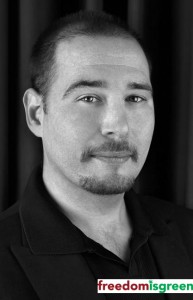7/6/2011, Updated – The issue of medical marijuana is set to be encamped on President Obama’s doorstep. The District of Columbia is in the process of implementing a 1998 law that was specifically blocked by Congress until 2009. The Washington Times reported yesterday that eighty-two applications to run cannabis centers were submitted to Washington DC Mayor Vincent Gray’s administration.
A majority of them, 47, listed mailing addresses in the District in their letters to the health department. Other applicants were from Maryland (18), Virginia (7), New York (3), New Jersey (2), and one each from California, Colorado and Montana.
A few of the out-of-state applicants boasted experience in medical marijuana where it is already legal. A spokeswoman for the health department could not be reached for comment on whether experienced growers and sellers would gain preference over applicants originating in the District.
Of the applicants who listed a cultivation or dispensary site, many of them had lined up property in Northeast, where industrial space is more plentiful.
A panel of five members — one each from the Department of Health, Metropolitan Police Department, Office of the Attorney General, Department of Consumer and Regulatory Affairs, and a consumer or patient advocate — will score each of the eventual applications based on a 250-point scale that examines criteria such as security and staffing at their facilities, their overall business plans and the opinions of local Advisory Neighborhood Commissions. READ FULL ARTICLE
The current regulations for medical marijuana in Washington DC are similar to those in Delaware and New Jersey. There are no provisions for patients or caregivers to cultivate a personal amount of cannabis. There are no legal protections for patients who access the underground marijuana market. All of the seriously ill residents who would qualify must access one of the proposed dispensaries.
In 1998 District voters approved Initiative 59, a ballot measure legalizing medical marijuana, with 69% approval. That was just the beginning to one of the strangest stories in medical marijuana politics.
Congressman Bob Barr (served 1995 to 2003), a Republican from Georgia, was one of America’s most vehement prohibitionists. He had a particular dislike for marijuana reform. Barr attached an amendment to the Omnibus Spending Bill in 1999 that funds Washington DC. The US Congress controls the DC budget. The amendment blocked Initiative 59 from being enacted. Despite several court battles the Barr Amendment was inserted into successive spending bills for a decade.
In 2008 Barr shifted in his stance on marijuana a full 180 degrees. And it wasn’t just talk, Barr began professional lobbying activities on behalf of the two groups he battled the most on the issue: The American Civil Liberties Union (ACLU) and The Marijuana Policy Project (MPP).
In 2009 Congress lifted the amendment from the Omnibus Spending Bill and Washington DC was allowed to proceed with medical marijuana implementation. Barr’s intensive lobbying effort to remove his own creation was seen as a key factor.
Another driving force behind DC’s compassionate use law was one of the worst tragedies of American marijuana prohibition. In 2004 Jonathan Magbie, a quadriplegic man in his late 20′s, was caught with a marijuana blunt while riding in a car with friends. A municipal judge sentenced Magbie to 10 days in the city jail after he was unabashed about his marijuana use to relieve some of his symptoms. The jail failed to provide the ventilator Jonathan needed to breathe and he died on the floor of his cell serving the first night of his sentence.
Magbie’s death may have been avoided if the DC medical cannabis law had not been blocked by Congress. Now, patients like Magbie continue to wait for the law to be fully implemented.
DC Mayor Vincent Gray and other officials are aware of the recent “Cole memo” from the Department of Justice. But the DC regulations require each prospective facility to grow less than 95 cannabis plants at any given time. This quantity (less than 100 plants) is thought to avoid interference from federal agencies like the Drug Enforcement Administration (DEA).
It remains to be seen if the federal authorities will set armed agents and prosecutors against the centralized dispensary systems in DC, New Jersey and Delaware. Because of the free-market model employed in states like Colorado and Michigan federal raid activity does not shut down entire state-regulated systems for patient access.
But raiding or interfering with these centralized facilities could completely shut down all of the regulated supply of medical cannabis to qualifying residents. Such activity may be much harder for federal authorities to justify.
Having an operating medical marijuana law and access system in Washington DC could set the stage for another major shift in the politics for American cannabis: a US Senator or Representative who is also a card-carrying medical marijuana patient.
Chris Goldstein is a respected marijuana reform advocate. As a writer and radio broadcaster he has been covering cannabis news for over a decade. Questions? chris@freedomisgreen.com
